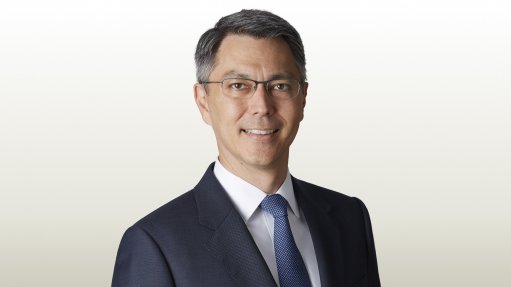
BHP CEO MIKE HENRY
Diversified miner BHP has told shareholders that the company is committed to growing value by positioning its portfolio to benefit from global trends.
Speaking at the company’s annual general meeting earlier this month, BHP CEO Mike Henry noted that, given higher population growth rates, rising living standards, electrification and decarbonisation, the company would aim to grow in commodities that would benefit the greatest from these trends.
As part of this plan, BHP is proceeding with the development of the Jansen potash project, in Canada, and has announced its intent to merge its petroleum business with ASX-listed Woodside.
“[We have] announced the sale of our interest in the BHP Mitsui Coal (BMC) coal assets in Queensland as we reshape our portfolio to focus on higher-quality metallurgical coal to increase efficiency and lower emissions in steelmaking,” said Henry.
BHP struck a $1.35-billion deal with ASX-listed Stanmore to divest of its 80% interest in BCM, comprising $1.1-billion in cash on completion, $100-million in cash six months after completion and potentially up to $150-million in a price-linked earnout payable in the 2024 calendar year.
Meanwhile, Henry said that BHP would also focus on growing its already strong positions in nickel and copper.
“In copper, we have some solid growth ahead over the next five years, thanks to the recently commissioned Spence Growth project, improving grades at Escondida and more reliable production out of Olympic Dam.
“We have increased our exploration effort and have work under way in Ecuador, Peru, Chile, Mexico, the US and Australia, and we are currently looking at targeted investment in early-stage development options –as we did with SolGold in Ecuador and the Elliott copper project in Australia.
“In nickel, we have established agreements with Midland Exploration in Canada and made an offer to acquire Noront Resources. This combination of exploration, targeted early-stage investments and unlocking significant organic growth in our existing operated assets sets us up to deliver more of our products to meet the world’s needs,” said Henry.
BHP’s bid for Noront Resources has been extended from November 16 until November 30 as discussions with Noront shareholder Wyloo Metals continue.
BHP is offering C$0.75 a share in cash for Noront, outbidding Wyloo Metals, which holds a 37.2% interest in Noront.
Meanwhile, chairperson Ken MacKenzie noted that BHP’s decarbonisation projects were expected to cost the company $2-billion to $4-billion as the company worked to achieve its emissions reduction target of at least 30% by 2030.
Henry noted that, with BHP’s recently released Climate Transaction Action Plan, the company outlined its continuing commitment to net-zero operational emissions by no later than 2050, and its mid-term target of at least 30% emissions reduction by 2030 on 2020 levels.
“We’ve been taking action on this front for over two decades now and our signing of multiple renewable energy contracts recently will help accelerate this reduction in the near term.
“Of course, it is not just about operational emissions, or Scope 1 and 2 emissions. We also must focus on the emissions generated by others in the value chain through the transport and processing of our products, and the provision of goods and services to BHP. These are our Scope 3 emissions.
“While we can’t determine the outcomes on that front alone, we are working with our customers and suppliers to stimulate and support their efforts to reduce emissions. This is in keeping with our long-term goal to pursue net-zero Scope 3 greenhouse-gas emissions by 2050 for our reshaped portfolio,” Henry said.